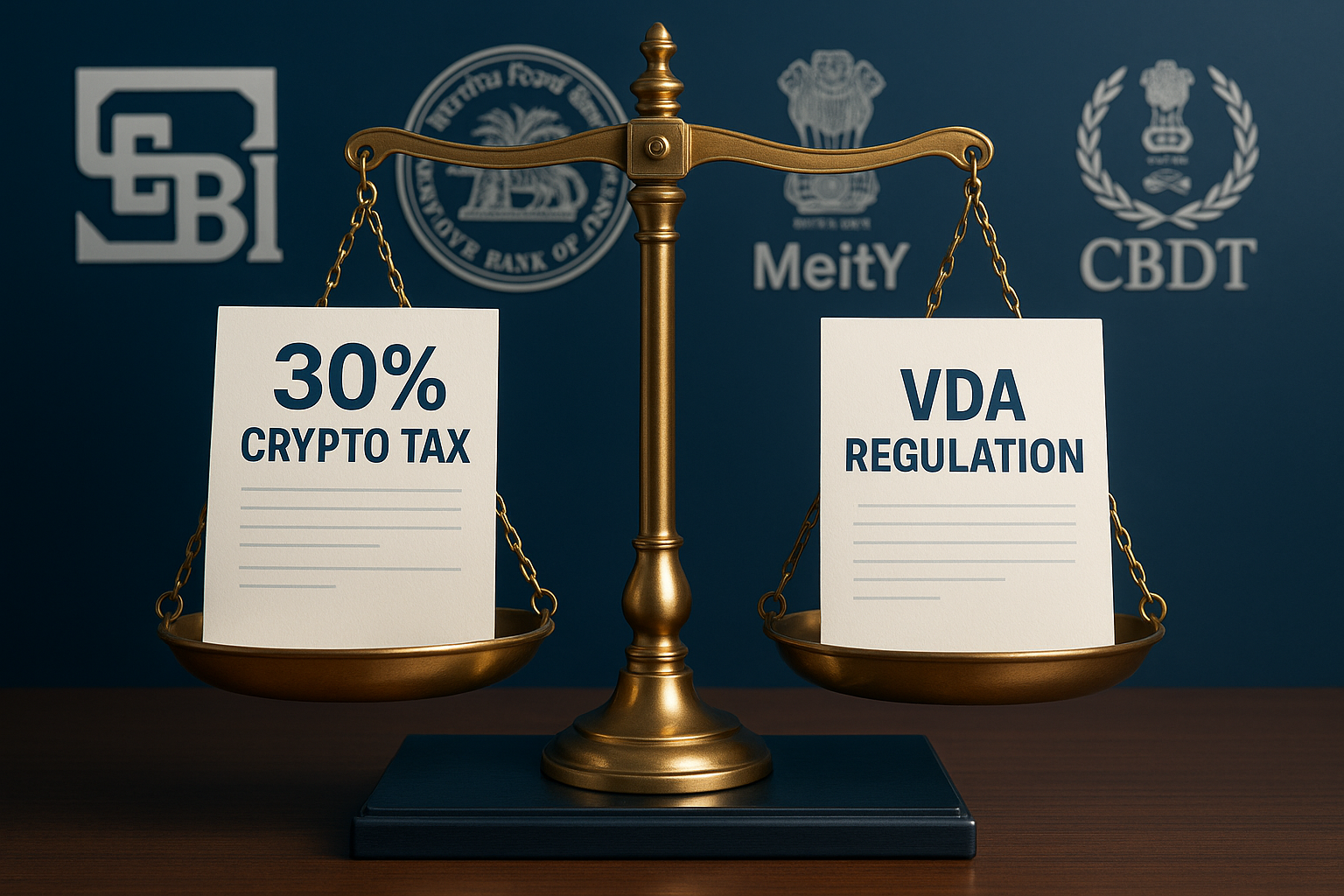India’s Central Board of Direct Taxes (CBDT) has opened consultations with crypto industry players to explore the need for a dedicated legal framework for Virtual Digital Assets (VDAs). Key issues under scrutiny include whether existing tax laws are sufficient, the appropriate regulatory body to oversee VDAs, and whether current tax provisions are driving traders overseas. This signals a potential shift toward more structured regulation of cryptocurrencies in India.
Key Discussion Points Raised by CBDT
Need for a New Regulatory Statute:
Regulators are seeking input on whether a standalone law is necessary and which authority—such as SEBI, RBI, MeitY, or FIU-IND—should govern VDAs.TDS Rate on Crypto Transactions:
Industry participants have been asked if the current 1% Tax Deducted at Source (TDS) on every crypto sale is excessive and, if so, what rate would be more appropriate.Allowing Loss Set-Offs:
The CBDT is evaluating whether traders should be permitted to set off losses from VDAs to reduce tax burdens and make the regime more equitable.Migration of Crypto Trade Abroad:
The board wants clarity on whether India’s current tax and regulatory framework has led to a significant shift of traders and businesses to offshore jurisdictions like Dubai.
Why It Matters
India’s existing crypto tax regime faces widespread criticism:
Crypto earnings are taxed at a flat 30%, higher than equity capital gains, and no deductions are allowed—excluding acquisition cost.
VDAs cannot be used to offset losses against other income, a departure from standard tax norms.
Mandatory 1% TDS on each transaction, even on small trades, creates liquidity burdens for active traders.
Moreover:
Banking support remains limited due to RBI’s cautious stance, and FEMA guidelines lack clear provisions for cross-border crypto activity.
Regulatory ambiguity led to a large share of Indian trading migrating overseas.
However, global momentum toward crypto regulation—like the EU’s MiCA framework—suggests India might pivot from skepticism to structured governance.
What Comes Next
Crypto platforms have been instructed to submit feedback by mid-August. The insights gathered may shape:
Drafting of a comprehensive crypto (VDA) law.
Designation of a regulating authority (e.g., SEBI for securities-like tokens, RBI for stablecoins, or FIU-IND for AML oversight).
Possible TDS rationalization, loss offset provisions, and improved definitions for crypto derivatives and cross-border transactions.
This development signals that India may be moving closer to establishing a more robust regulatory and taxation model for cryptocurrencies.












